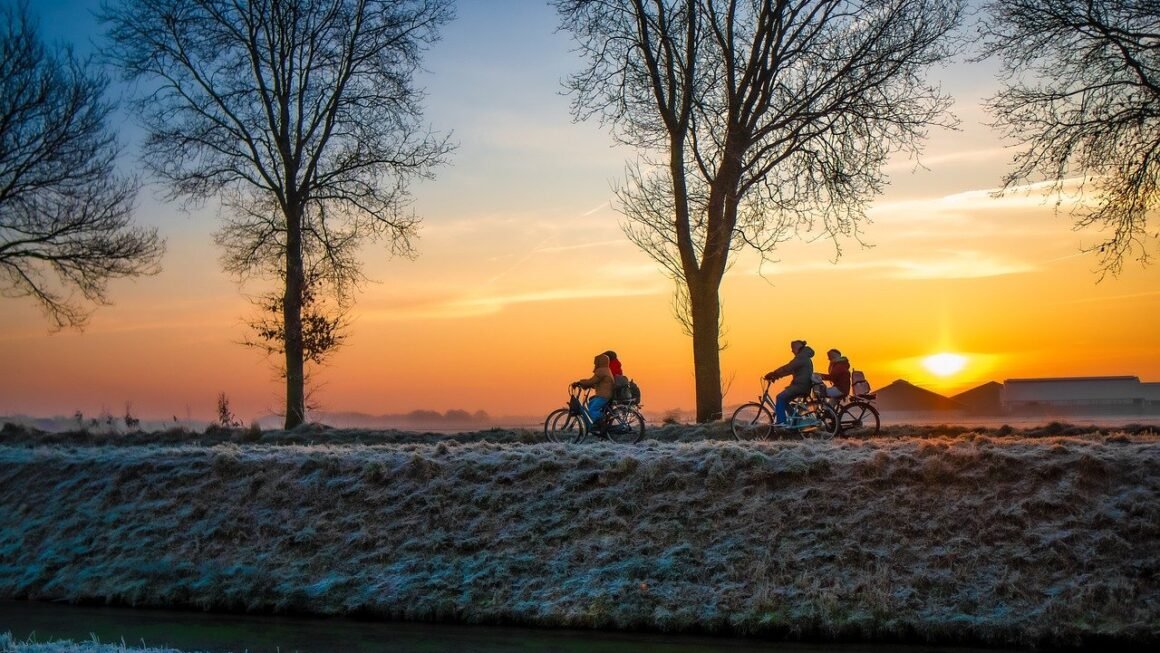Cultural experiences enrich our lives in ways that material possessions simply can’t. They broaden our perspectives, foster empathy, and create lasting memories. Stepping outside of our comfort zones to engage with different traditions, art forms, and ways of life allows us to truly connect with the world and discover more about ourselves. This blog post will explore the diverse realm of cultural experiences and provide insights into how you can incorporate them into your own life.
The Power of Cultural Immersion
Understanding Cultural Immersion
Cultural immersion goes beyond simple tourism. It involves actively engaging with a culture, learning its nuances, and understanding its values. It’s about participating, not just observing. This deeper engagement allows for transformative experiences and lasting personal growth.
Benefits of Immersing Yourself in a Culture
- Increased Empathy: Stepping into someone else’s shoes (or sandals!) allows you to understand different perspectives and fosters empathy for others.
- Expanded Worldview: Cultural immersion challenges your existing beliefs and broadens your understanding of the world.
- Personal Growth: Navigating unfamiliar situations and adapting to different customs builds resilience and self-confidence.
- Improved Communication Skills: Interacting with people from diverse backgrounds sharpens your communication skills, both verbal and non-verbal.
- Enhanced Creativity: Exposure to new art forms, music, and traditions can inspire creativity and innovation.
Practical Examples of Cultural Immersion
- Homestays: Staying with a local family provides a firsthand experience of daily life and cultural customs.
- Language Learning: Studying a new language not only enables communication but also unlocks a deeper understanding of the culture associated with it.
- Volunteer Work: Participating in community projects allows you to contribute to local initiatives and build meaningful relationships.
- Cooking Classes: Learning to prepare traditional dishes provides insight into culinary traditions and cultural values.
Exploring Different Art Forms
Appreciating Visual Arts
Visual arts, including painting, sculpture, and photography, offer a powerful window into a culture’s history, beliefs, and values. Visiting local art museums, galleries, and studios can provide a rich understanding of the artistic expressions of a particular culture.
The Magic of Performing Arts
Experiencing traditional dances, musical performances, and theatrical productions can be incredibly captivating. These art forms often tell stories, convey emotions, and reflect the cultural identity of a community.
Literary Journeys
Reading literature from different cultures provides valuable insights into their history, society, and individual experiences. Exploring different genres and authors can offer a deeper understanding of the cultural context.
Examples of Art-Focused Cultural Experiences:
- Attending a Kabuki performance in Japan.
- Visiting the Louvre Museum in Paris to see iconic works of art.
- Taking a pottery class in Oaxaca, Mexico.
- Exploring street art in Berlin.
Culinary Adventures: A Taste of Culture
Understanding the Role of Food in Culture
Food is more than just sustenance; it’s a reflection of a culture’s history, environment, and traditions. Exploring a culture through its cuisine can be a delicious and enlightening experience.
Exploring Local Markets and Street Food
Visiting local markets and sampling street food provides an authentic glimpse into the culinary practices of a community. It’s a great way to discover unique flavors and interact with local vendors.
Taking Cooking Classes and Food Tours
Participating in cooking classes and food tours allows you to learn about the ingredients, techniques, and cultural significance of various dishes.
Examples of Culinary Cultural Experiences:
- Taking a pasta-making class in Italy.
- Exploring a spice market in Marrakech, Morocco.
- Sampling street food in Bangkok, Thailand.
- Attending a traditional tea ceremony in China.
Festivals and Celebrations: Immersing in Tradition
Significance of Festivals and Celebrations
Festivals and celebrations are integral parts of many cultures, representing important historical events, religious beliefs, or seasonal changes. Participating in these events provides a unique opportunity to witness cultural traditions firsthand.
Examples of Festivals and Celebrations Around the World
- Dia de los Muertos (Day of the Dead) in Mexico: A vibrant celebration honoring deceased loved ones.
- Holi (Festival of Colors) in India: A joyous festival celebrating the arrival of spring.
- Oktoberfest in Germany: A traditional beer festival celebrating Bavarian culture.
- Carnival in Rio de Janeiro, Brazil: A spectacular parade and celebration of Brazilian culture.
Tips for Participating in Festivals Responsibly
- Respect Local Customs: Be mindful of local customs and traditions, and dress appropriately.
- Learn Basic Phrases: Learning a few basic phrases in the local language can enhance your interactions with locals.
- Engage with Locals: Take the time to interact with locals and learn about the significance of the festival.
- Be a Responsible Tourist: Support local businesses and minimize your environmental impact.
Connecting Through Community Engagement
Participating in Local Initiatives
Volunteering for local initiatives and community projects can provide a deeper understanding of the challenges and opportunities faced by a community. It’s a great way to contribute to positive change and build meaningful relationships.
Supporting Local Businesses
Supporting local businesses, such as family-owned restaurants, artisan shops, and community markets, helps to preserve local culture and traditions.
Building Relationships with Locals
Making an effort to connect with locals, learn about their lives, and share your own experiences can lead to meaningful friendships and cultural exchange.
Examples of Community Engagement:
- Volunteering at a local soup kitchen.
- Participating in a community cleanup event.
- Teaching English to children in a developing country.
- Supporting local artisans by purchasing their products.
Conclusion
Cultural experiences offer a wealth of opportunities for personal growth, increased empathy, and a deeper understanding of the world. By embracing cultural immersion, exploring different art forms, engaging in culinary adventures, participating in festivals and celebrations, and connecting with local communities, you can enrich your life and create lasting memories. Remember to be respectful, open-minded, and willing to learn as you embark on your cultural journey. The world is a vibrant tapestry of diverse traditions and perspectives, waiting to be explored.





V8 Poker, GPI và KingMaker – 3+ NPH game bài hot hit đang có mặt tại tải 66b . Bạn có thể lựa chọn chơi với nhiều chế độ: Đánh với máy, tự tạo bàn hoặc tham gia thách đấu với hội viên khác để tranh hạng Top 1, hốt ngay phần thưởng gấp 40 lần tiền cược ban đầu. TONY12-16
Kho slot tại 888slot được phân loại rõ ràng: cổ điển, video, jackpot, Megaways… giúp bạn dễ dàng tìm game yêu thích chỉ trong 1 click. TONY01-05
Nhóm 5: Tổng hợp & Kêu gọi hành động (CTA) (20 đoạn) TONY01-06S
888slot có mục “tin tức thị trường” – cập nhật biến động odds, sự kiện thể thao ảnh hưởng đến cược. TONY01-07